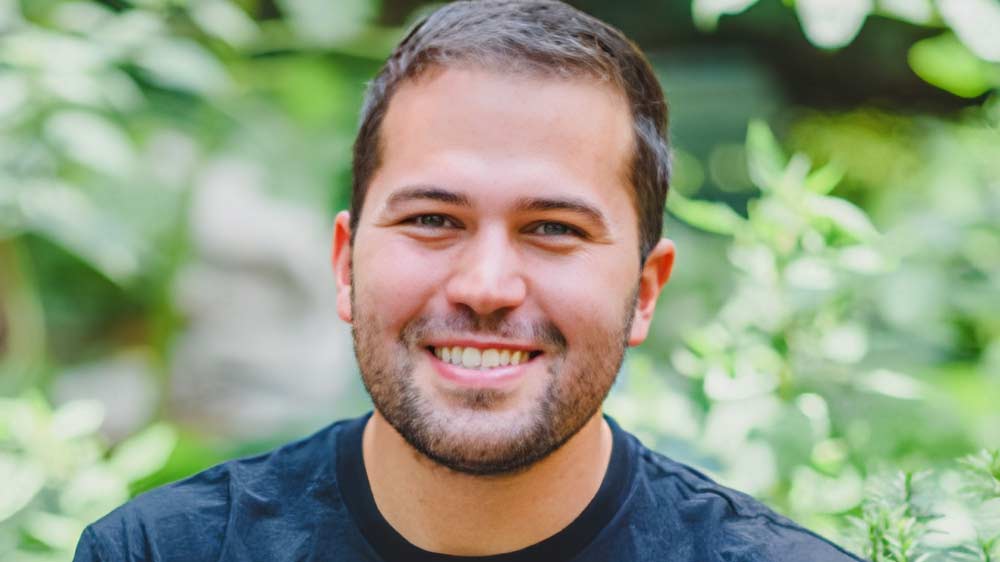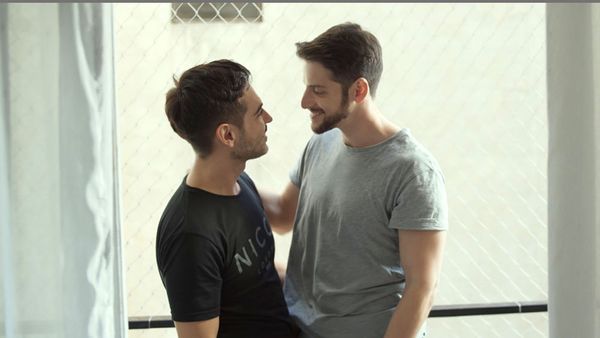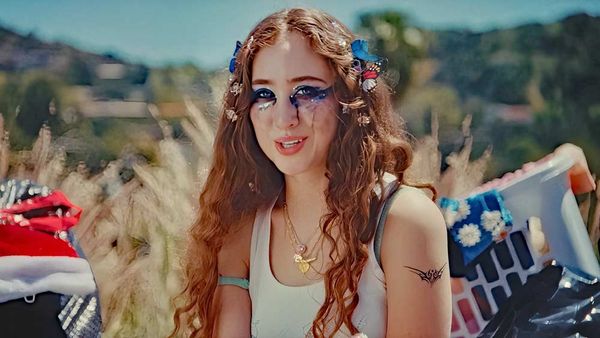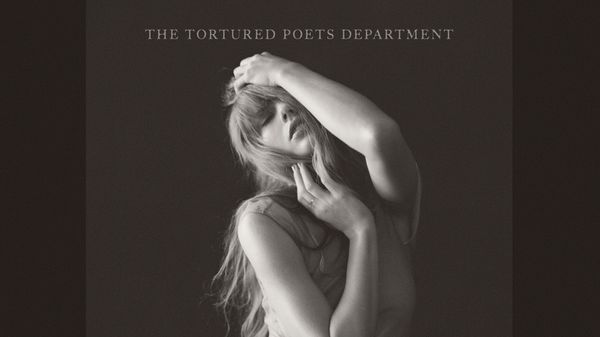
November 9, 2018
Desiree Akhavan on Bringing 'Cameron Post' to the Screen, Part One
Robert Nesti READ TIME: 9 MIN.
Editor's note: EDGE spoke to Desiree Akhaven about her film "The Miseducation of Cameron Post," when it was released this past August and recently became available on digital and streaming platforms . We revisit the interview with the release of the film on streaming and digital platforms. Akhaven also discusses her upcoming Hulu series "The Bisexual," which premieres on November 16.
As it turned out, no. Despite being compared to Lena Dunham (and getting a role on "Girls" after Dunham saw "Appropriate Behavior,") Ms. Akhavan found it so difficult to develop a new project that she couldn" t="" pay="" her="" rent.="" A="" move="" to="" London="" remedied="" that,="" as="" did="" her="" developing="" a="" pet="" project="" -="" the="" filming="" of="" Emily="" M="" Danforth's="" 2012="" book="" LGBTQ="" Young="" Adult="" novel="" "The="" Miseducation="" of="" Cameron="" Post,"="" which="" was="" released="" this="" past="" August="" and="" recently="" became="" available="" on="" digital="" and="" streaming="" platforms="" .="" (While="" in="" London,="" she="" also="" developed="" and="" filmed="" a="" new="" Hulu="" series,="" "The="" Bisexual,"="" which="" premieres="" on="" Hulu="" on="" November="" 16.)
For more on streaming "Cameron Post,"
Akhavan was so enamored by the novel that when she first read it, her and her then girlfriend, filmmaker Ingrid Jungermann imagined how they would adapt it to the screen. She wrote a fan letter to Danforth and gave a copy of the book to her writing partner and co-writer Cecilia Frugiuele, who subsequently secured the rights. They then set out to turn Danforth's story, set in 1993, from a 500-page novel to a 90-minute movie, as well as immersing themselves in understanding conversion therapy. Some 25 drafts later, they had their script.
Shot in a camp in Montana that acts as a stand-in for the novel's "God's Promise," the film stars Chlo� Grace Moretz as Cameron and Sasha Lane ("American Honey") and Forrest Goodluck as two other teens undergoing conversion therapy whom she befriends; and John Gallagher Jr. and Jennifer Ehle as the brother and sister that oversee the camp. The film premiered at last year's Sundance Film Festival, where it won the Grand Jury Prize for US Drama.
In reviewing the film recently in the New York Times, A.O. Scott wrote that it is "is a movie that deserves a wide and diverse audience.
"'Miseducation' is neither a glib sendup of a less enlightened era nor a pious reckoning with the bygone injustices of the past," Scott continues. "It is more interested in how its characters feel than in what they might symbolize, and in how they grapple with the conflicting demands of faith and desire. It's also about the struggle between earnest young people and the equally earnest, painfully misguided adults who are trying to save their souls."
Forrest Goodluck, Sasha Lane and Chlo� Grace Moretz in "The Miseducation of Cameron Post.
EDGE spoke to Akhavan recently just as the film's largely positive reviews came out. Here is the first part of a two-part interview; the second half will be published tomorrow.
EDGE: Do you read reviews?
Desiree Akhavan: I try not to, but my brother is lovably unaware of how destructive reviews can be so he'll text me things. Last night I found myself reading a couple and it crushed my soul. It is like being an addict. I think, I can read one sentence and then put it down. The next thing I know it is two hours later and I am Googling the reviews and feeling outraged. But right now I am feeling so wonderful because I read two reviews. But I find myself focusing on the reviews that didn't understand the film. If someone says something good, you don't absorb it all. But then I feel alone in the world when I read the reviews that say this movie is an afterschool special.
EDGE: It must be very ego-deflating to read that stuff...
Desiree Akhavan: The whole situation is a big ego-fuck and it is good not to take any of it seriously. I know theoretically all intelligent people understand that none of it matters at all, but it can't help but get under your skin and drive you crazy. But also my ego shouldn't be insulated either. It is all part of the job.
EDGE: I read where when the novel came out, you and your then girlfriend (the filmmaker Ingrid Jungermann who made "Women Who Kill") imagined how it would be turned into a movie. How different was your vision from what it is?
Desiree Akhavan: I would say that is exactly the same because my vision was very big. I wanted to capture the tone of the comedy and the tragedy together, and the absurdity of the situation they were in, along with the ramifications of villianizing someone's sexuality. That's what I wanted for the film and in that way I feel that the final film captures exactly what I wanted. But in my head I never imagined the locations specifically, or the costumes. I was open to my collaborators bringing everything to the table. I had tone in my head, but they brought the specificity and actually made the film.
Chlo� Grace Moretz in "The Miseducation of Cameron Post.
EDGE: Did you ever consider updating the novel that is set in 1993?
Desiree Akhavan: I always wanted to keep in the 1990s. When we thought of making it contemporary, it didn't seem right because there are so many links to the outside world with technology. And there was something important about feeling that these kids were cut off from the rest of the world.
EDGE: You have also said that you love John Hughes. How did his films influence this one?
Desiree Akhavan: I love John Hughes films. The thing is I love that those films spoke to the angst of being a teenager. That nobody understood you and the adults in your life are full of shit. And it was your first time realizing it is the blind leaving the blind. That angst juxtaposed with the joy of having autonomy for the first time. That you were no longer an extension of the adults in your life. You can fuck and smoke and dance and do all these adult things you didn't realize. It is this in-between phase. To me the films that he made, specifically "The Breakfast Club" and "Sixteen Candles" and "Pretty in Pink," that spoke to that. I wanted to make a John Hughes film that spoke to me. That spoke about female sexuality, specifically, and female desire.
EDGE: Are you like Cameron?
Desiree Akhavan: No. I wasn't that cool. No, Cameron is an ode to the women I have loved.
EDGE: What was the research like when preparing the film?
Desiree Akhavan: Emily Danforth, who wrote the book, shared books and documentaries that she researched with me and my co-writer and producer Cecilia Frugiuele, and also the various people that characters are based on. That was our jumping off point. We followed the leaders of Exodus International, which was the umbrella organization that was promoting gay conversion in the United States and abroad. The people who led it were very vocal and we stalked them, we followed their lives, we based things off them.
And we also looked at the various practices and therapies and different techniques used. They were very simplistic. It didn't take a lot to break down the structure of gay conversion therapy, which is basically if you're a woman who is gay you haven't had the right feminine conditioning and you need to have more female influences in your life. If you're a man, it's the same thing, but with men. You have to surround yourself with strong male influences and avoid the women in your life. If you are attracted of someone of the same sex, you don't want to be with them, you want to be them. You are just confused. It is so silly and simplistic. I don't know. There's a very basic and idiotic logic to it.
Chlo� Grace Moretz in "The Miseducation of Cameron Post.
EDGE: Was that part of the process difficult? I mean, did you have an aversion to what you were reading about and seeing?
Desiree Akhavan: Yeah, but it also seemed hilarious at the time. It was difficult when you saw people struggling. When reading the theories, I was amused. It was hilarious to read about. But when we met survivors of gay conversion therapy, it was heartbreaking because you could see how they were so completely fucked with. There's a tenuous relationship that every person has with their confidence and their sexuality, and to manipulate that so early in someone's life leaves everlasting scars. I think every person can relate to that in some ways. It is not just gay conversion therapy.
For me I started out obsessing about turning the book into the film because gay conversion therapy seemed like a metaphor to what it was to be a teenager. No matter who you are, gay or straight, you are feeling diseased, like there is something wrong with you. And the people around you, your classmates or your parents or your teacher, are telling you that you are wrong in some way. I felt as a teenager that there was something deeply wrong with me and that I had a disease. It took my 20s to de-brainwash myself from what my teen years were.
EDGE: How is it different from the book?
Desiree Akhavan: It's tricky. The characters are all from the book, the structure is basically from the book itself. The book didn't go as far into the characters as we did because it is different medium. There were different ways we wanted to illustrate her journey. The book deals a lot with Cameron's relationship with her parents' death, and that wasn't something I wanted to tackle in this movie. That wasn't my agenda. Every scene became about, how can I push the story I am telling here? A handful of scenes are fabricated, but it still deserves the same title of the book. It is still Emily's world, but we were just fucking around with.
EDGE: How did she like it?
Desiree Akhavan: I think she really likes it. I think she understood that we needed to take certain liberties. She was an open collaborator. I don't think she was pressured. That was part of the joy of working with her and being friends with her - she wasn't precious about this. She gave it away and said, you do your own thing and trusted me to be respectful of what was important.
Jennifer Ehle in "The Miseducation of Cameron Post."
EDGE: You cast Jennifer Ehle, who is one of the more underrated actresses working in film today, as Dr. Lydia March, as the head of God's Promise, who appears to be caring, but most intimidating and seems out of her league. How did you collaborate with her in conceiving the character?
Desiree Akhavan: We spoke mostly of the humanity of Lydia. We didn't want her to be a caricature. And wherever it went, it felt honest to a woman who is doing her best to devote her life to what she felt was the betterment of children, of saving their lives at an early age. To justify that personality, she became tightly wound.
EDGE: How did you come to cast Forrest Goodluck and Sasha Lane as other teens undergoing conversion therapy that Cameron bonds with?
Desiree Akhavan: I had seen "American Honey" and I loved Sasha in it. She is just phenomenal. She is one of the most incredible actresses I've worked with. I would really like to work with her again. She has a sense of self that is unwavering and I just find her endlessly compelling. Forrest was one of the very few Native American actors willing to play gay. He is also incredible. I feel very lucky. We were determined to cast a Native American actor and in that pool (of Native American actors) we got a lot of rejection when they learned the character was gay. I was surprised by that.
EDGE: After you made "Appropriate Behavior," you couldn't find work that interested you in Hollywood and it was such a struggle that it reached a point when you said you couldn't pay your rent. Is there something about the movie making process in Hollywood that pigeonholes writers and directors in ways that stifle their creativity?
Desiree Akhavan: I think there are very few opportunities for women who made their first feature in Hollywood. I moved to London and suddenly I had opportunities. In Hollywood, it wasn't enough that I had made a feature film that had been to Sundance and got great reviews. No one was willing to take a risk. But when I went to the UK, it was like, what risk? You made something. But I think Hollywood is spineless. That they are afraid to think outside the box. That unless it is a very safe financial investment no one is going to make it. And it is tricky when it comes to creative work, to say what is safe and what is not safe. So the model becomes what already has been made and made funny, let's redo that.
Editor's note: the second half of this interview can be reached on the link below.
"The Miseducation of Cameron Post," which was released this past August and recently became available on digital and streaming platforms. For more on streaming "Cameron Post,"
Watch the trailer to "The Miseducation of Cameron Post":
Robert Nesti can be reached at [email protected].







